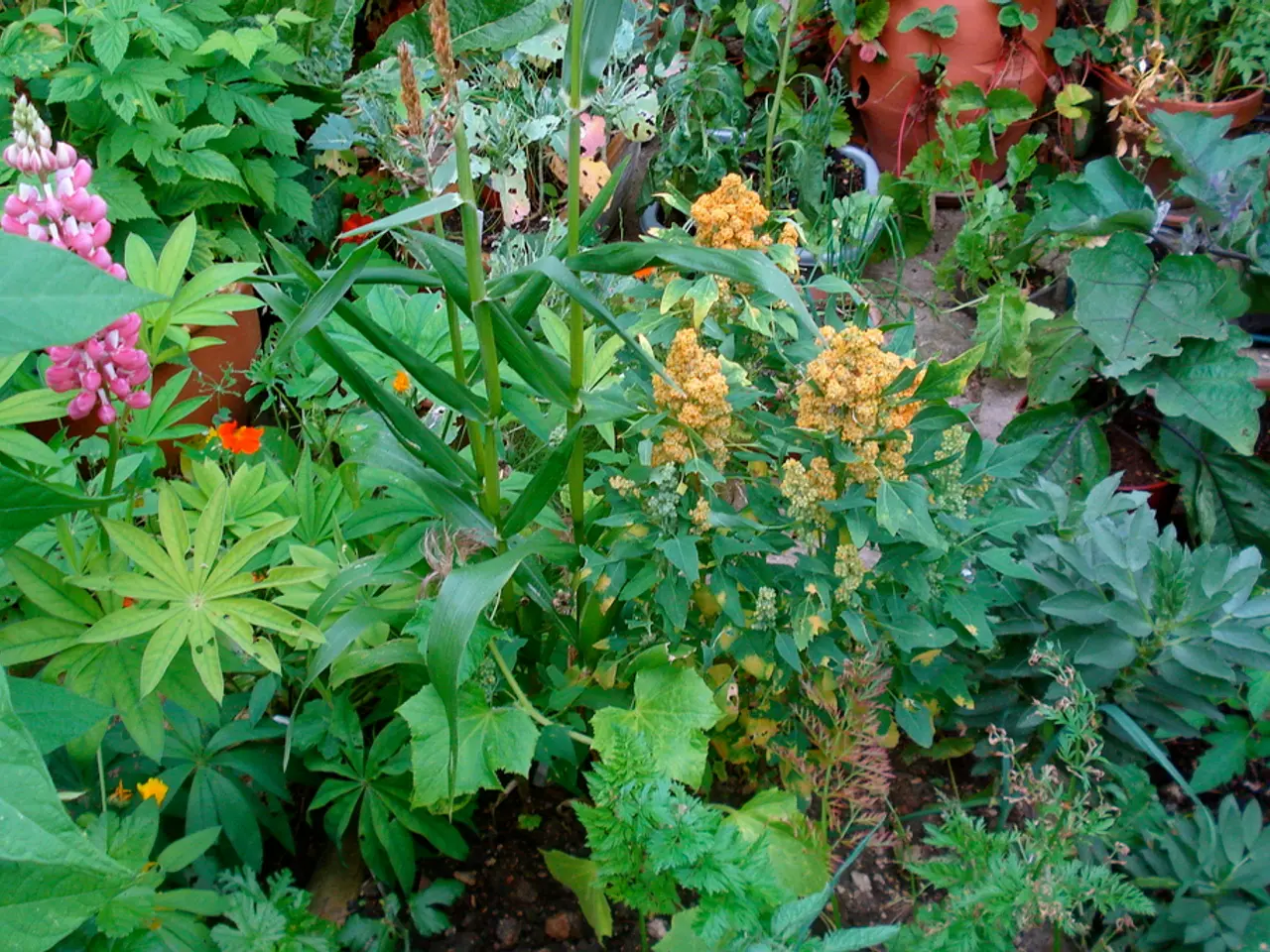"A single bush of Melissa herb carries the potential to alleviate various issues for an entire wildlife group."
In the ongoing quest for a pest-free garden, many gardeners are turning to natural solutions, and one plant that's gaining popularity is Lemon Balm, also known as Melissa. This aromatic herb offers a host of benefits for your garden, from pest control to soil improvement.
Melissa is a versatile plant that repels a variety of pests, including aphids, scale insects, and spider mites. Its essential oils create unfavorable conditions for these unwanted visitors, making it an effective natural barrier against these pests.
By strategically placing Melissa near crops that are most susceptible to these pests, gardeners can significantly lower the risk of diseases in fruit trees and shrubs. For instance, around tomatoes, cucumbers, peppers, and cabbage, the aromatic presence of Melissa helps reduce pest pressure. However, it's advisable not to plant Melissa near white cabbage, as it may promote the development of common diseases and outcompete the cabbage.
In addition to its pest-repelling properties, Melissa also improves soil structure. Its growth promotes aeration and water retention, which benefits neighboring crops. This makes Melissa a particularly beneficial plant for crops susceptible to aphids and other small insects.
To make the most of Melissa's protective properties, it's essential to control its growth. Periodically thinning its planting area and limiting its spread can prevent it from becoming aggressive in the garden.
To further enhance the pest-repelling and pollinator-attracting benefits of Melissa, consider combining it with other companion plants. Sweet Alyssum, for example, attracts beneficial insects such as green lacewings, which prey on garden pests, and also supports pollinators like honeybees and butterflies. Marigolds, known for their strong scent that repels various insects, are another excellent choice for companion planting.
Basil and mint, both herbs that help repel certain insects, can also be planted alongside Melissa to diversify pest control in the garden. Parsley, thyme, dill, and petunias, when alternated with Melissa, especially near fruit trees, can help deter pests while supporting overall plant health.
By combining Melissa with these companion plants, gardeners create a multi-layered natural pest control system that also attracts pollinators, promoting healthier, more resilient garden ecosystems.
In essence, by using Melissa, gardeners can reduce the numbers of certain pests in their garden without relying on chemical pesticides. This integrated approach leverages the pest-repelling qualities and pollinator-attracting features of these plants together with Melissa to create a more balanced and sustainable garden.
incorporating Melissa into home-and-garden settings can significantly improve your lifestyle by creating a pest-free environment for various crops. By strategically positioning Melissa near vulnerable plants like tomatoes, cucumbers, peppers, and cabbages, gardeners can lower the risk of diseases in fruit trees and shrubs. Furthermore, Melissa improves soil structure, providing benefits to neighboring plants, making it a valuable asset in the home-and-garden lifestyle, particularly for gardens that need optimal soil conditions.




